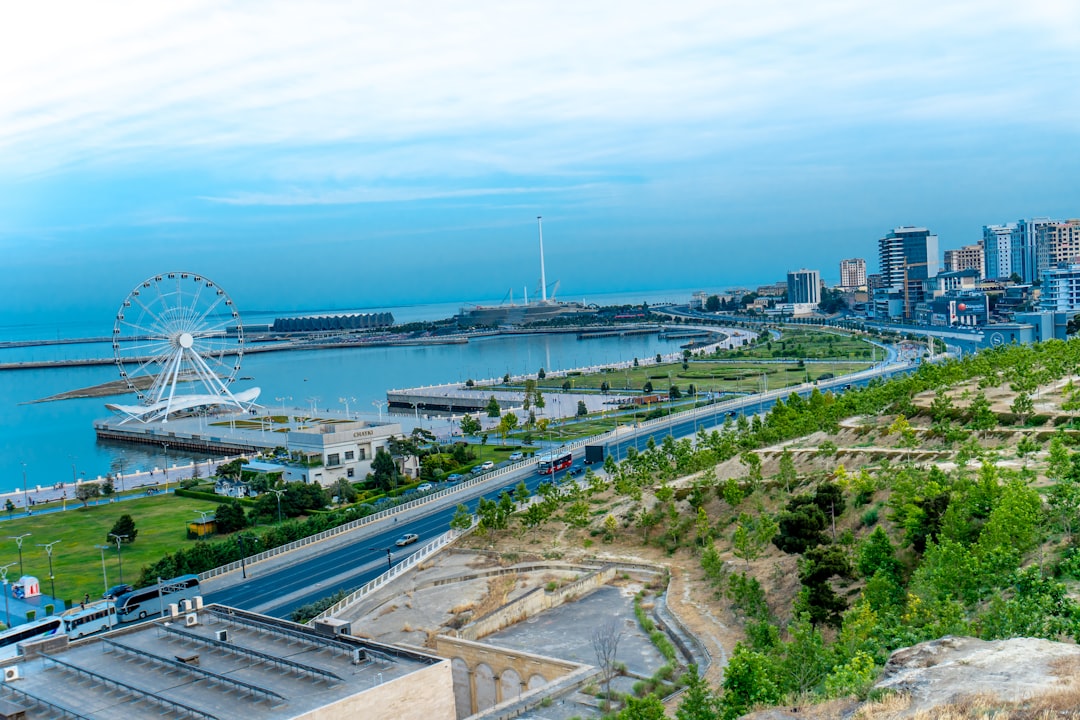Thailand Cost of Living Guide for Digital Nomads

Introduction
Thailand has become one of the most popular destinations for digital nomads. The blend of modern infrastructure, affordable living, warm climate and welcoming culture makes it an attractive base for remote work. Yet the phrase “affordable” can mean very different things depending on where you choose to stay, what lifestyle you prefer and how you manage your expenses. This guide breaks down the real costs you can expect in Thailand, gives you concrete numbers for the most common cities, and offers practical tips for stretching your budget without sacrificing quality of life.
Why Thailand Is a Nomad Magnet
- Low everyday costs – Food, transport and basic services are considerably cheaper than in most Western countries.
- Strong internet infrastructure – Most urban areas have fiber connections, 4G LTE coverage is widespread and many cafés and coworking spaces provide reliable Wi‑Fi.
- Visa flexibility – The Tourist Visa, Visa‑Exempt entry, and the newly introduced Digital Nomad Visa give you multiple pathways to stay for months at a time.
- Community – Cities such as Bangkok, Chiang Mai and Phuket host thriving expat and nomad networks, making it easy to meet people, find coworking spaces and learn about local deals.
Understanding the cost structure behind these advantages helps you plan a sustainable stay.
Major Cost Categories
Accommodation
Your biggest expense will be where you live. Thailand offers a spectrum from budget hostels to luxury condos. Below is a snapshot of typical monthly rents for a range of accommodation types in three popular nomad hubs.
| City | Private studio (city centre) | One‑bedroom apartment (city centre) | One‑bedroom apartment (outside centre) | Shared apartment (room only) |
|---|---|---|---|---|
| Bangkok | $600‑$900 | $800‑$1,300 | $400‑$700 | $250‑$400 |
| Chiang Mai | $300‑$500 | $400‑$600 | $200‑$350 | $150‑$250 |
| Phuket | $500‑$800 | $700‑$1,100 | $350‑$600 | $250‑$400 |
Key points
- Short‑term rentals (month‑to‑month) are usually listed on platforms like Airbnb, Booking.com and local Facebook groups. Expect a small premium over long‑term lease rates.
- Long‑term leases (6‑12 months) often require a security deposit equal to two months’ rent and a one‑month advance payment.
- Utilities (electricity, water, internet) are usually not included in the rent price. Expect $50‑$100 per month for a modest apartment, higher in air‑conditioned units during the hot season.
- Negotiation – Landlords in Thailand are accustomed to negotiation, especially during the low season (May‑October). Don’t hesitate to ask for a discount or a free month if you commit to a longer lease.
Food
Food costs can vary dramatically based on whether you eat local street fare, cook at home, or dine in Western restaurants.
- Street food and market stalls – A bowl of Pad Thai, a plate of Som Tam (spicy papaya salad) or a serving of grilled chicken can cost $1‑$2. A daily budget of $5‑$10 can cover three meals if you stick to these options.
- Supermarkets and grocery stores – Thai supermarkets such as Tesco Lotus, Big C and local chains like Makro offer a wide range of fresh produce, rice, noodles and imported goods. A weekly grocery basket for one person (rice, vegetables, eggs, chicken, a few fruits) typically costs $15‑$25.
- Western restaurants – A meal at a mid‑range Western-style restaurant can run $8‑$15 per person. Expat‑focused cafés often charge $3‑$5 for a coffee and $4‑$8 for a pastry.
Cooking at home is the most cost‑effective way to control your food budget. Many apartments come with a basic kitchen, and you can buy rice and basic ingredients in bulk for under $30 per month.
Transportation
Thailand’s transport options are both cheap and varied.
| Mode | Typical cost (per ride) | Monthly estimate (regular use) |
|---|---|---|
| BTS/MRT (Bangkok) | $0.70‑$1.50 | $30‑$50 |
| Songthaew (shared truck) | $0.30‑$0.70 | $20‑$35 |
| Motorbike rental (daily) | $6‑$9 | $150‑$250 |
| Car rental (compact) | $25‑$35 per day | $600‑$800 |
| Grab (ride‑hailing) | $2‑$6 per short trip | $80‑$150 |
Tips
- Motorbikes are the most popular way to get around in cities like Chiang Mai and Phuket. A 150 cc bike can be rented for $5‑$7 per day; many owners offer a discount for monthly rentals.
- Public transit in Bangkok (BTS Skytrain, MRT subway) is efficient and inexpensive. A stored‑value card (Rabbit Card) makes travel seamless.
- Grab works in most urban areas and is a safe alternative to hailing taxis, especially at night.
- Fuel costs about $0.90‑$1.00 per litre, which is low compared with many Western countries.
Coworking Spaces
A reliable workspace is essential for most digital nomads. Thailand’s coworking scene has grown rapidly, offering a range of options from budget desks to premium private offices.
| City | Daily pass | Hot‑desk (monthly) | Dedicated desk (monthly) | Private office (monthly) |
|---|---|---|---|---|
| Bangkok | $5‑$10 | $120‑$180 | $180‑$260 | $500‑$900 |
| Chiang Mai | $4‑$8 | $80‑$120 | $130‑$180 | $300‑$500 |
| Phuket | $5‑$12 | $130‑$190 | $200‑$280 | $600‑$1,000 |
Most spaces include high‑speed internet, printing, coffee, and access to meeting rooms. Some also host community events, language exchanges and networking nights, which can be valuable for building contacts.
Utilities
Utility costs depend heavily on your usage of air‑conditioning, which is common in Thailand’s hot climate.
- Electricity – $0.10‑$0.15 per kWh. A small studio with moderate AC usage may cost $40‑$70 per month, while a larger apartment kept cool 24/7 can exceed $150.
- Water – Usually $1‑$2 per cubic metre; most apartments charge a flat rate of $5‑$10 per month.
- Internet – Broadband fiber plans start at $20‑$30 per month for 100 Mbps, with higher tiers up to $60 for 500 Mbps. Many coworking spaces and cafés also provide free Wi‑Fi, which can reduce the need for a personal line.
Health & Insurance
Healthcare in Thailand is high‑quality and affordable, especially in private hospitals in Bangkok and Chiang Mai.
- Doctor’s visit – $20‑$40 for a consultation in a private clinic.
- Prescription medication – $5‑$15 for common drugs (antibiotics, pain relievers).
- Emergency care – A full night in a private hospital can cost $150‑$300, which is why comprehensive travel or expat health insurance is strongly recommended.
International insurers such as World Nomads, SafetyWing and IMG offer plans starting at $40‑$80 per month, covering outpatient visits, hospitalisation and evacuation.
Entertainment & Leisure
Thailand’s leisure options range from free cultural experiences to premium activities.
- Gym membership – $30‑$60 per month for a decent gym in the city centre.
- Yoga studio – $8‑$15 per class; monthly passes $80‑$120.
- Massage – A 60‑minute Thai massage in a reputable shop costs $8‑$15.
- Weekend trips – A two‑day trip to a nearby beach or mountain region (bus, accommodation, meals) can be done for $60‑$120.
- Nightlife – Entry to most bars is free; drinks range from $2 for a local beer to $6 for a cocktail.
Visa Options & Associated Costs
| Visa type | Duration | Main cost (USD) | Key requirements |
|---|---|---|---|
| Visa‑Exempt (tourist) | Up to 30 days (single entry) | Free (for most nationalities) | Passport valid 6 months |
| Tourist Visa (single entry) | 60 days, extendable 30 days | $60‑$70 | Proof of funds, confirmed onward travel |
| Multiple‑Entry Tourist Visa | 6 months, each stay up to 60 days | $150‑$200 | Proof of residence abroad, bank statement |
| Education Visa (study) | 90 days, extendable up to 1 year | $60‑$80 | Enrolment in Thai language school |
| Digital Nomad Visa (new) | Up to 1 year, renewable | $300‑$350 | Proof of remote work income ≥ $2,000/month, health insurance |
Most digital nomads rely on the Tourist Visa or Visa‑Exempt entry and simply extend their stay at immigration offices in Bangkok, Chiang Mai or Phuket. Extensions cost around $30‑$40 and require a bank statement showing at least $1,500‑$2,000 in a Thai bank account.
Sample Monthly Budgets
Below are three realistic monthly budget outlines for different lifestyles. All figures are in US dollars and represent an average month for a single person.
Budget‑Friendly (Chiang Mai)
- Accommodation: Shared apartment (room only) $180
- Utilities & Internet: $60
- Food: Street meals + occasional grocery cooking $150
- Transport: Songthaew + occasional motorbike rental $40
- Coworking: Hot‑desk $80
- Health insurance: $50
- Entertainment & Misc: $70
- Visa & admin: $30 (average)
Total: $660
Mid‑Range (Bangkok)
- Accommodation: One‑bedroom apartment (outside centre) $550
- Utilities & Internet: $80
- Food: Mix of market cooking and cafés $250
- Transport: BTS/MRT + occasional Grab $120
- Coworking: Dedicated desk $200
- Health insurance: $70
- Entertainment & Misc: $150
- Visa & admin: $40
Total: $1,460
Premium (Phuket, beach lifestyle)
- Accommodation: One‑bedroom condo (city centre) $900
- Utilities & Internet: $120
- Food: Mix of dining out and groceries $350
- Transport: Motorbike rental + occasional taxi $180
- Coworking: Private office $650
- Health insurance: $80
- Entertainment & Misc: $250 (activities, trips)
- Visa & admin: $50
Total: $2,580
These numbers illustrate how your choice of city, housing type and work environment directly impacts your overall spend. Even the premium budget remains lower than the average cost of living in many Western capitals.
Money‑Saving Strategies
-
Live outside the tourist hot‑spots – Rent drops by 30‑50 % a short distance from city centres. In Bangkok, neighborhoods such as On Nut, Phra Khanong and Ladprao offer excellent transport links and lower prices.
-
Cook more often – Buying rice, noodles, eggs and seasonal vegetables in bulk can slash food costs dramatically. Local markets have fresh produce for a fraction of supermarket prices.
-
Negotiate internet bundles – Many providers (True, AIS, 3BB) have promotional packages for new customers. Ask for a bundle that includes both broadband and mobile data; you’ll often get a discount of $5‑$10 per month.
-
Use public transport – A stored‑value card for the BTS/MRT or a monthly bus pass can reduce transport costs by up to 40 % compared with daily Grab rides.
-
Take advantage of coworking free trials – Many spaces offer a free day or a discounted first‑week pass. Test a few locations before committing to a monthly desk.
-
Shop at wholesale clubs – Makro and Big C have bulk sections where you can buy staples like cooking oil, canned goods and bottled water at lower unit prices.
-
Stay flexible with visas – Switching between Visa‑Exempt entry and a 60‑day Tourist Visa can keep your immigration costs low while you explore different regions.
-
Travel during the low season – Flights and accommodation on islands such as Koh Samui and Koh Phangan drop dramatically from May to October.
Practical Tips for Managing Finances
-
Open a Thai bank account – Having a local account makes paying rent, utilities and receiving money from clients easier. Popular banks for expats include Bangkok Bank, Kasikornbank and Siam Commercial Bank. Requirements usually include a passport, a work or visa permit and a minimum deposit of $100‑$200.
-
Use multi‑currency debit cards – Cards from Revolut, Wise or N26 let you hold several currencies and spend with low conversion fees. This is handy when you receive payments in USD, EUR or GBP.
-
Track expenses – Simple budgeting apps like YNAB, Mint or the built‑in spreadsheet tools in Google Sheets help you see where your money goes. Set categories (rent, food, transport, leisure) and review weekly.
-
Stay aware of exchange rates – The Thai baht can fluctuate. Converting a larger amount when the rate is favourable and keeping it in a Thai account can protect you from short‑term dips.
-
Keep a cash reserve – While cards are widely accepted, small street vendors and some markets only take cash. Having $200‑$300 in cash on hand is advisable, especially in more remote areas.
Health & Safety Considerations
-
Vaccinations – Recommended vaccinations for Thailand include Hepatitis A, Typhoid, Tetanus and, depending on your travel plans, Japanese Encephalitis.
-
Air quality – In the dry season (February‑April) some northern regions experience high particulate matter due to agricultural burning. Keep an air‑quality app on your phone and consider a portable mask if you have respiratory sensitivities.
-
Road safety – Traffic can be chaotic, especially in Bangkok. If you ride a motorbike, always wear a helmet, carry a valid Thai driving licence or an International Driving Permit, and insure your bike.
-
Water safety – Tap water is generally not safe to drink. Use filtered or bottled water for drinking and brushing teeth.
-
Emergency numbers – Police: 191, Ambulance: 1669, Fire: 199. Most hospitals in major cities have English‑speaking staff.
Community Resources
-
Facebook groups – “Digital Nomads Thailand”, “Chiang Mai Expats”, “Bangkok Remote Workers” are active with daily postings about housing, coworking deals and social events.
-
Meetup.com – Search for “digital nomad”, “tech”, “language exchange” in each city to find regular gatherings.
-
Coworking newsletters – Many spaces publish monthly newsletters with discounts, events and local tips. Subscribing can give you early access to promotions.
-
Local blogs – Websites such as “The Expat Life in Thailand” and “Nomad List” feature city‑specific cost breakdowns, visa updates and personal stories that can help you plan ahead.
Frequently Asked Questions
Do I need a work permit to work remotely in Thailand?
For most digital nomads who are employed by foreign companies and receive income abroad, a work permit is not required. The Thai authorities consider remote work as a form of tourism. However, if you start a Thai‑registered business or receive Thai‑sourced income, a work permit becomes mandatory.
Is it safe to ride a motorbike as a foreigner?
Yes, many expats and locals ride motorbikes safely. The key is to wear a helmet, drive defensively, and obtain a Thai driving licence after three months of residence if you plan to stay longer. Insurance for the bike is also advisable.
Can I get a Thai phone number as a short‑term visitor?
Most mobile operators (AIS, TrueMove, dtac) offer prepaid SIM cards that you can buy at the airport or convenience stores. Registration requires a passport scan and typically takes a few minutes.
What is the best time of year to move to Thailand?
The cool season (November‑February) offers pleasant temperatures and lower humidity, making it ideal for most people. However, this is also the high tourist season, so accommodation prices are higher. If you prefer lower costs and don’t mind occasional rain, the shoulder months of March‑April or the low season May‑October are good alternatives.
Final Thoughts
Thailand’s cost of living offers a remarkable balance between affordability and quality. By choosing the right city, negotiating housing, leveraging coworking spaces wisely, and keeping an eye on visa and health expenses, a digital nomad can comfortably live on $800‑$1,500 per month while enjoying a vibrant culture, excellent food and reliable internet.
Remember that numbers are only a guide; personal preferences, work requirements and lifestyle choices will shape your actual spend. Use this guide as a foundation, adapt it to your circumstances, and you’ll find Thailand an inviting and sustainable home base for remote work.
Safe travels and happy productivity!
Random Posts

Connecting Wanderers Through Global Nomad Community Events
Global nomad events turn solo travel into a shared adventure, linking remote workers through fast-internet coffee talks, collaborative brainstorming, and lasting friendships that boost careers and personal growth.
2 months ago

Step by Step Roadmap to Becoming a Fulltime Nomad
Follow a clear step-by-step roadmap to assess your motivations, build remote income, set up travel logistics and sustain productivity, so you can confidently transition from a 9 to 5 to a full-time nomad life.
3 weeks ago

Boosting Productivity With The Right Remote Work Toolkit
Discover the essential remote-work toolkit that bridges home offices and company goals, boosting efficiency, clear communication, and seamless collaboration across time zones.
2 weeks ago

The Ultimate Guide to Finding Remote Jobs Online
Learn how to land a remote job fast with this step by step guide: discover the remote market, master search tools, build a winning profile, ace interviews, and secure a flexible role that fits your lifestyle.
2 months ago

Sustainable Travel Hacks for Light Living
Discover how digital nomads can travel lighter and greener with simple hacks: minimal gear, low-waste habits, carbon-smart choices, so every adventure protects the planet.
2 months ago
Latest Posts

Essential Software Every Remote Professional Should Use
Master remote work with essential tools: instant messaging like Slack, high definition video calls such as Zoom, and asynchronous voice apps. Streamline communication, stay connected and boost productivity.
1 day ago

Mastering Remote Work Productivity for Digital Nomads and Freelancers
Learn proven habits, tools, and tactics that help digital nomads and freelancers stay focused, deliver quality work, and maintain a sustainable lifestyle while traveling the world.
1 day ago

Tech‑Friendly European Towns Perfect for Remote Living
Discover Europe’s best small towns where fast internet, affordable living and vibrant tech communities let you work remotely while soaking up historic charm, lakeside views or mountain air.
1 day ago